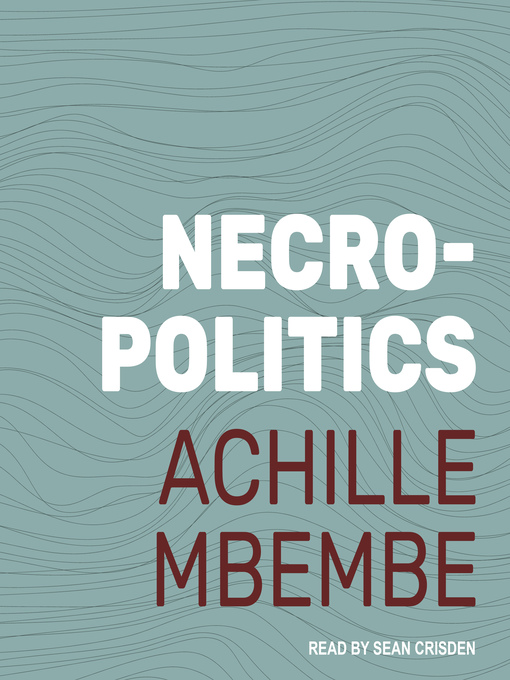-
Description
-
Creators
-
Details

- Achille Mbembe - Author
- Sean Crisden - Narrator
- Steven Corcoran - Translator
OverDrive Listen audiobook
- ISBN: 9781666123012
- File size: 245424 KB
- Release date: November 9, 2021
- Duration: 08:31:17
MP3 audiobook
- ISBN: 9781666123012
- File size: 245457 KB
- Release date: November 9, 2021
- Duration: 08:35:12
- Number of parts: 9
Formats
OverDrive Listen audiobook
MP3 audiobook
subjects
Languages
English
